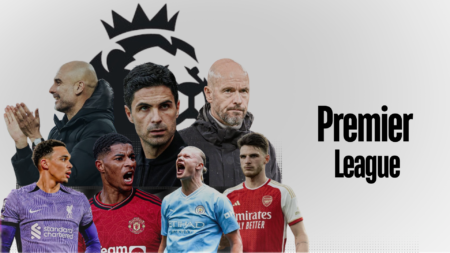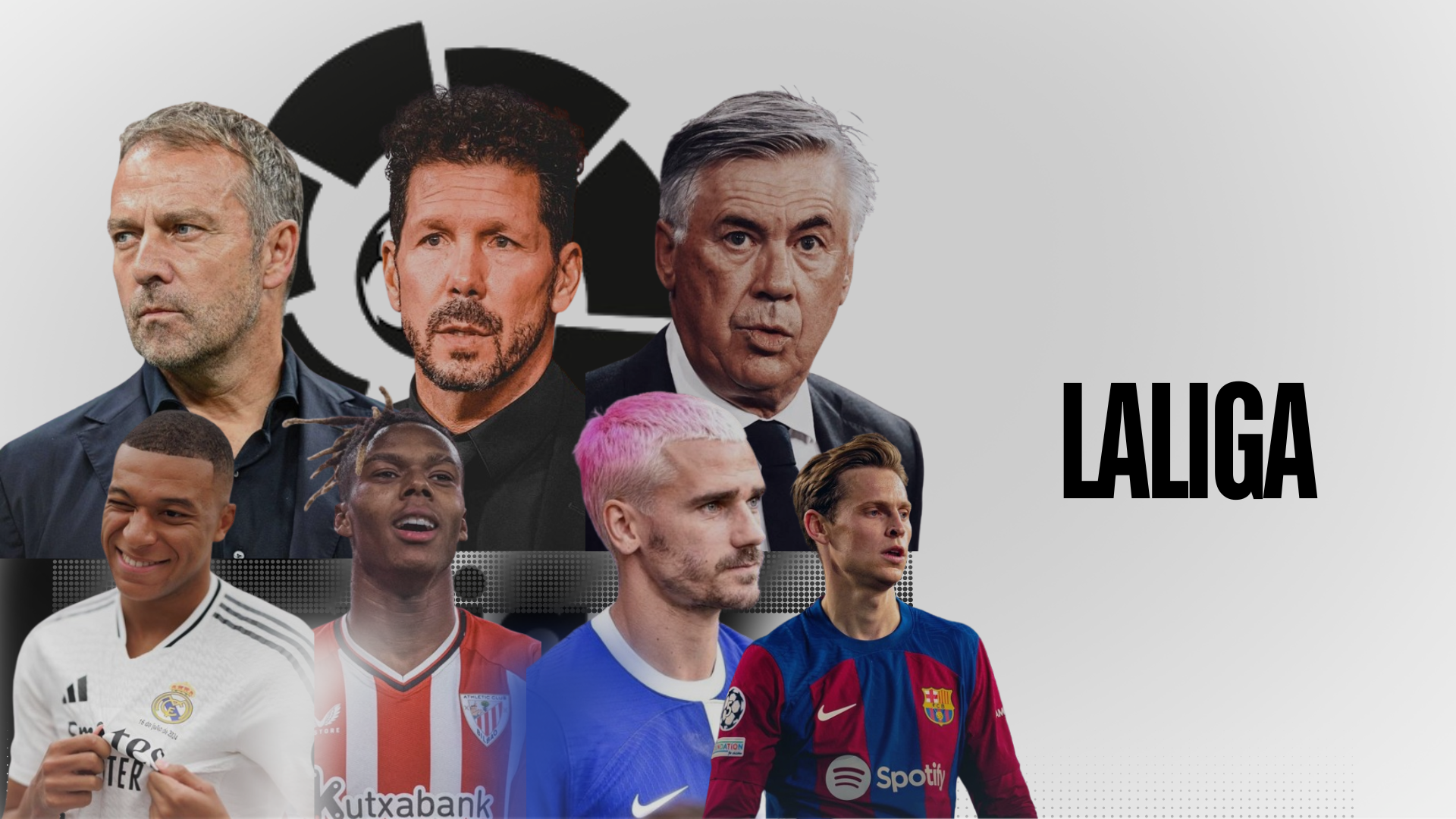Premier League
Introduction
The Premier League, known as the pinnacle of English football, stands as one of the most watched and celebrated football leagues in the world. Since its inception in 1992, the Premier League has revolutionized the sport, attracting millions of fans globally with its high-octane matches, star-studded teams, and fierce competition. The league has become synonymous with excellence, drama, and entertainment, cementing its status as a global sporting phenomenon.
History of the Premier League
The Premier League was born out of a desire to commercialize English football, bringing it in line with the growing demands of television audiences and sponsors. Prior to its formation, English football was governed by the Football League First Division, which had seen success but was struggling financially and competitively in comparison to European counterparts.
In 1992, the top 22 clubs in the Football League decided to break away and form their own league, backed by lucrative television deals. This move was led by the “Big Five” clubs at the time—Manchester United, Liverpool, Arsenal, Tottenham Hotspur, and Everton. The creation of the Premier League marked the beginning of a new era in English football, with the league’s matches being broadcasted to millions of homes, both domestically and internationally.
Structure and Format
The Premier League operates as the top tier of English football, consisting of 20 teams. Each season, these teams compete in a double round-robin format, where every team plays each other twice—once at home and once away—amounting to a total of 38 matches per team.
The league follows a promotion and relegation system with the English Football League (EFL) Championship. The three lowest-placed teams in the Premier League at the end of each season are relegated to the Championship, while the top three teams from the Championship are promoted to the Premier League. This system ensures that the competition remains fierce, with teams constantly battling to either secure their place in the top flight or achieve promotion from the lower division.
The team with the highest points at the end of the season is crowned the Premier League champion. In the event of a tie in points, the winner is determined by goal difference, and if still tied, by goals scored. The top four teams typically qualify for the UEFA Champions League, while the fifth-placed team earns a spot in the UEFA Europa League.
Notable Teams and Rivalries
Over the years, the Premier League has been dominated by a select group of clubs, often referred to as the “Big Six”: Manchester United, Liverpool, Chelsea, Arsenal, Manchester City, and Tottenham Hotspur. These teams have not only amassed numerous domestic titles but have also made their mark on the European stage.
Manchester United, under the legendary management of Sir Alex Ferguson, became synonymous with Premier League success in the 1990s and early 2000s. Their fierce rivalry with Liverpool, known as the North-West Derby, remains one of the most anticipated fixtures each season, fueled by decades of competition and regional pride.
Chelsea’s rise to prominence began in the early 2000s following their acquisition by Russian billionaire Roman Abramovich. The club’s investment in top-tier talent paid off, with Chelsea winning multiple Premier League titles and establishing fierce rivalries with Arsenal and Tottenham Hotspur in London.
Arsenal, known for their attractive, attacking style of play under Arsène Wenger, enjoyed a period of dominance in the late 1990s and early 2000s, including an unbeaten season in 2003-2004, famously known as “The Invincibles.” Their North London rivalry with Tottenham Hotspur, known as the North London Derby, is one of the most passionate and historic in English football.
Manchester City’s transformation from a mid-table team to a football powerhouse began with their acquisition by Sheikh Mansour in 2008. Since then, the club has invested heavily in players and infrastructure, leading to multiple Premier League titles and a growing rivalry with Manchester United, known as the Manchester Derby.
Key Players and Managers
The Premier League has been graced by some of the most talented players and managers in football history. From goal-scoring legends to tactical masterminds, the league has seen it all.
One of the most iconic players in Premier League history is Thierry Henry, the French striker who dazzled fans with his pace, skill, and finishing ability during his time at Arsenal. Henry’s influence extended beyond the pitch, as he became a symbol of the club’s golden era under Arsène Wenger.
Cristiano Ronaldo, who began his career at Manchester United, is another player who left an indelible mark on the Premier League. Ronaldo’s combination of flair, athleticism, and goal-scoring prowess made him one of the most feared players in the league before he moved to Real Madrid in 2009.
Steven Gerrard, a one-club man with Liverpool, is revered for his leadership, tenacity, and ability to score crucial goals. Gerrard’s long-range strikes and never-say-die attitude made him a fan favorite and a symbol of Liverpool’s resilience.
In terms of managers, Sir Alex Ferguson stands out as the most successful in Premier League history. Under his leadership, Manchester United won 13 Premier League titles, and Ferguson’s ability to adapt and rebuild his teams over the years is a testament to his managerial genius.
Arsène Wenger, known for his innovative approach to training and player development, revolutionized English football during his time at Arsenal. His emphasis on nutrition, scouting, and youth development set new standards in the league.
José Mourinho, the self-proclaimed “Special One,” brought a new level of tactical discipline to the Premier League when he took charge of Chelsea. His ability to create well-organized, defensively solid teams made him one of the most successful managers in the league, winning multiple titles with Chelsea.
Impact on Global Football
The Premier League’s influence extends far beyond the shores of England. It has become a global brand, attracting fans from all corners of the world. The league’s matches are broadcasted in over 200 countries, with a cumulative audience of billions each season. This global reach has turned Premier League clubs into household names, with fanbases that span continents.
The influx of foreign players and managers has also enriched the league, bringing diverse playing styles and tactics to English football. This cosmopolitan nature of the Premier League has made it a melting pot of footballing cultures, enhancing the overall quality and appeal of the league.
Moreover, the Premier League has played a significant role in the development of football in other regions. The league’s success has inspired the formation of similar competitions in countries such as India (Indian Super League) and the United States (Major League Soccer), which have modeled themselves on the Premier League’s structure and commercial strategies.
Economic Influence
The Premier League’s economic impact is immense, both in the UK and globally. The league generates billions of pounds in revenue each season, primarily through television rights, sponsorship deals, and merchandise sales. This financial power has allowed clubs to attract top talent from around the world, making the Premier League one of the most competitive and exciting leagues in football.
Television rights, in particular, have been a major source of income for the Premier League. The sale of broadcasting rights to domestic and international networks has brought in substantial revenue, with the most recent deals valued at over £5 billion. This influx of money has not only benefited the top clubs but has also been distributed among all 20 teams, helping to maintain a level of competitiveness across the league.
The economic influence of the Premier League extends beyond football. The league contributes significantly to the UK economy, supporting thousands of jobs and generating substantial tax revenue. The presence of Premier League clubs in cities also has a positive impact on local economies, boosting tourism, hospitality, and retail sectors.
Challenges and Controversies
Despite its success, the Premier League has faced its share of challenges and controversies. One of the most pressing issues has been the growing financial disparity between the top clubs and the rest of the league. The vast sums of money available to the “Big Six” clubs have created an uneven playing field, with smaller clubs struggling to compete both on and off the pitch.
Another challenge has been the increasing commercialization of the league, which has led to concerns that the soul of English football is being lost. Traditional matchday experiences have been altered, with rising ticket prices and the influence of corporate sponsorships changing the atmosphere at games.
The Premier League has also had to contend with issues related to player welfare, including the impact of fixture congestion on player health. The intense schedule, coupled with international commitments, has led to concerns about player burnout and the long-term effects of such demanding workloads.
Future of the Premier League
The future of the Premier League looks bright, but it will undoubtedly face new challenges in the coming years. The continued globalization of the league is likely to bring both opportunities and obstacles, as the Premier League seeks to maintain its status as the world’s leading football competition.
One area of potential growth is the expansion of the Premier League’s digital presence. With the rise of streaming services and social media, the league has the opportunity to reach even more fans worldwide. Embracing new technologies and engaging with younger audiences will be crucial for the Premier League’s continued success.
However, the league will also need to address ongoing concerns about financial disparity and the sustainability of its current model. Ensuring that all clubs have the opportunity to compete on a level playing.





1 comment